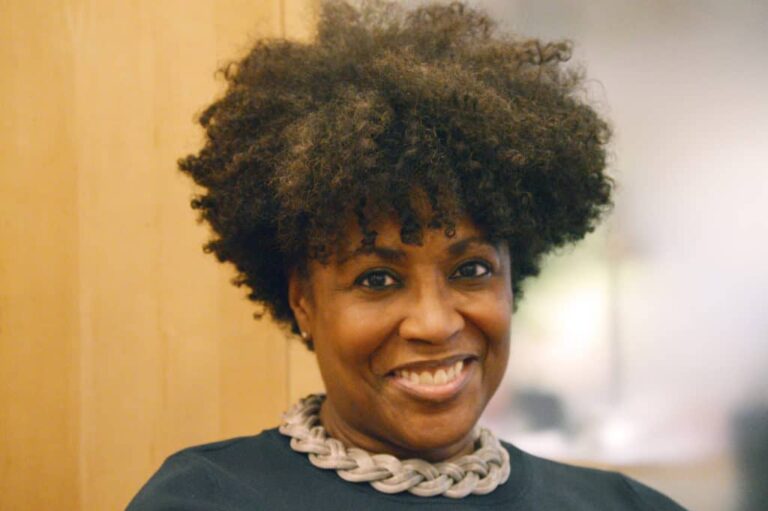作者:Antoinette Cockerham(首席运营官)
本月,在我们庆祝黑人历史月之际,我发现自己花了一些时间来回顾非裔美国人收养的历史、斯宾塞·查宾在那段历史中扮演的角色,以及我在 25 多年的收养工作生涯中目睹的许多令人鼓舞的变化。
25 年前,我刚从社会工作学校毕业,就认定儿童福利是我最热衷的领域。我意识到,要想有效地开展家庭工作,我需要一个拥有强大价值观的组织的支持:正直、相互尊重、多元化、创造力、机会。
斯宾塞-查平基金会建立了坚实的基础,我很感激。这是一个非盈利、无宗派的纽约市组织,在我到达时,它已经为近 18,000 名儿童找到了永久家庭。20 世纪初,创始人克拉拉·斯宾塞和艾丽斯·查平独立为留在医院和收容所的无家可归婴儿建立了托儿所,然后将这些婴儿安置在永久收养家庭。她们是关心儿童和家庭并为之努力的女性。碰巧的是,这些家庭都是白人。这两个组织合并为斯宾塞-查平收养服务机构,该机构于 1946 年成立,并立即开始制定为黑人儿童寻找家庭的计划。我支持这种愿景。
斯宾塞-查平的董事会建议纽约社会工作学院的一名学生研究“黑人群体”收养子女的必要性,并在哈莱姆区进行研究。这名学生安排了一次与 格拉迪斯·兰道夫女士, 哈莱姆医院社会工作主任,了解到医院里有 18 名婴儿,他们每天至少与 33 个不同的人互动,而且他们即将迎来两岁生日 在医院.
斯宾塞-查平委员会研究了这些发现,并于 1946 年 10 月启动了非裔美国人收养计划。到 1947 年初,两名黑人儿童被安置在黑人家庭。到 1948 年,该机构聘请了一名黑人社工寻找寄宿家庭,并在哈莱姆区传播信息,让人们知道斯宾塞-查平是儿童的新资源。
通过更多的研究,我发现了更多著名的黑人领袖,其中许多是女性,她们为斯宾塞·查普林的发展做出了贡献。 休伯特·德莱尼,著名的德莱尼姐妹的兄弟(“畅所欲言——德莱尼姐妹的第一个 100 年”), 1950 年当选为 Spence-Chapin 董事会成员在一次重要的社会服务会议上,德莱尼先生说:“斯彭斯-查平基金会正在推进这项服务(收养),这将消除种族障碍,为我们的民主生活方式做出真正的贡献。”
1951年, 雷切尔·罗宾逊(杰基夫人) 被招募到斯宾塞·查普林的“开发收养资源委员会”,也称为“家庭寻找委员会”。
她曾与夫人共同担任该委员会主席。 埃莉诺·罗斯福,并于 1953 年当选为 Spence-Chapin 董事会成员。
我可以效仿的其他女性在 20 世纪 50 年代一直支持 Spence-Chapin 的黑人家庭招募工作,包括 休伯特·德拉尼夫人;拉尔夫·邦奇夫人,政治家、活动家和 1950 年诺贝尔和平奖获得者的妻子;以及著名的非裔美国女低音歌唱家, 玛丽安·安德森女士。 安德森女士以其惊人的嗓音闻名于世。1939 年,在美国革命女儿会拒绝让她在混合观众面前演唱后,罗斯福夫妇特意为她安排了在林肯纪念堂的演出。 简·D·爱德华兹夫人是一名黑人社会工作者和成功的项目经理, 1967 年至 1990 年 Spence-Chapin 执行董事.
在 1968 年,Spence-Chapin 创立 Harlem-Dowling,该组织的一个分支机构将设在哈莱姆,工作人员由哈莱姆居民组成。当年的年度报告指出:“我们相信,通过以我们的名称、声誉、资源和技术知识支持这个分支机构,我们可以帮助新机构比单独成立时更快地获得全面发展。我们打算帮助社区创建一个独立、自给自足的机构,满足其自身需求。” 20 世纪 80 年代末,哈莱姆-道林决定扩大其寄养服务,斯宾塞-查平选择结束其寄养计划,专注于收养,这两个机构分道扬镳。
20 世纪 90 年代,联邦《多种族安置法案》(MEPA)主导了收养实践。MEPA 规定,不得以种族、肤色和/或国籍为由拖延(或拒绝)任何儿童被安置到某个家庭,并要求采取“不懈努力”来增加种族和民族多元化(寄养)和收养父母的数量。斯宾塞-查宾再次采取行动,加强其招募和支持黑人收养家庭的计划。
斯宾塞-查平 聘请了一位经验丰富的黑人媒体专家, 成立了一个名为“非裔美国父母咨询委员会”(AAPAC)的黑人养父母志愿者团体。AAPAC 就非裔美国人收养政策、做法、招募等问题为 Spence-Chapin 提供建议,并筹集资金为潜在收养家庭分担收养费用。1993 年至 2011 年间,AAPAC 筹集了 $277,000 美元,并帮助 135 名儿童加入他们的家庭。
我就是在这段时间(1992 年 10 月)被聘用的,并迅速担任过各种职务,从非裔美国人收养计划的个案工作者、主管、经理、收养家庭招募协调员、国内收养计划副主任、主任,现在是外部关系和家庭服务执行副总裁。这些年来,我招募收养家庭,设计高效的内部系统,培训社会工作者,并创建了新的项目,例如“收养父亲支持小组”,通过该小组,非裔美国人收养计划的父亲在整个收养过程中为其他男性提供支持。他们向新父亲讲述为人父亲的乐趣和挑战,并指导他们如何抚养黑人收养儿童,使他们拥有健康的自尊。父亲支持小组还帮助制作了一个视频,在视频中,他们讨论了他们现实生活中的收养故事,描述了他们如何决定收养,他们如何向孩子们讲述收养的故事,以及他们如何与朋友和家人谈论收养。
我招募黑人收养家庭的努力包括接触黑人教堂、黑人姐妹会和兄弟会、专业协会和社区组织。我与 Spence-Chapin 通讯部一起管理以媒体为中心的外展计划,并通过互联网和媒体向黑人家庭广播收养信息,包括 KISS-FM、POWER 105-FM、WLIB-AM、WLIW-TV、AM New York、Harlem Parent Magazine、黑人和拉丁裔社会工作通讯、Google、Yahoo、Spence-Chapin Facebook 页面和网站。在此期间,许多家庭结识,其中许多人至今仍与 Spence-Chapin 及其计划保持联系。如今,我与 Spence-Chapin 的创新开发、营销和推广部门合作,继续通过电视采访(“Here and Now”(ABC 电视台)、112BK(BRIC 电视台)、Brooklyn Savvy)、小组讨论(“The Wickedest Woman” 戏剧作品)、主持收养相关研讨会、在社区活动中代表收养利益(阿波罗剧院的 WOW、哈莱姆商会)、与基金会和其他捐助者合作,与家庭取得联系。那些可能从 Spence-Chapin 的收养、家庭指导和支持服务中受益的人必须知道这些服务的存在。
二十五年来,收养制度不断发展。它变得更加包容、更加多样化、更加容易获得。然而,总有工作要做,我很自豪能加入一个继续相信并践行这一努力的组织——成为推动我们继续前进的动力之一,为需要帮助的孩子们找到充满爱的、永久的领养。


